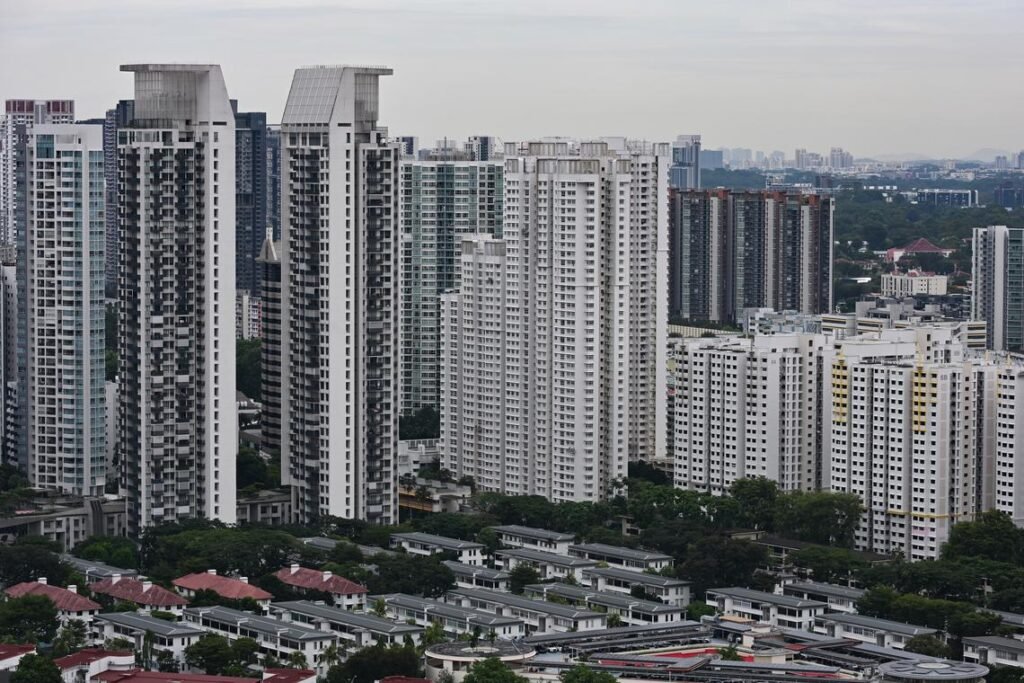SINGAPORE – Couples who transfer full ownership of their first home to one spouse – a gambit known as “decoupling” – so that the other can buy another property without the additional buyer’s stamp duty (ABSD), are breaking the law if the sole purpose of the move is to avoid tax, the High Court has found.
The finding stemmed from a recent dispute involving an unmarried couple who held their first property in the ratio of 99 to 1 in favour of the woman. But when they broke up, the former boyfriend claimed he owned at least half of the home, and not just 1 per cent.
A reason for holding the property 99 to 1 was that they had planned a decoupling to avoid the ABSD for their second property. This would be achieved when the boyfriend transferred away his minute share so that he could buy a second property as a non-owner.
Although the decoupling did not materialise, the court scrutinised such transactions and found that owners who decouple in this manner could be committing tax evasion as well as the underpayment of stamp duty if the 99-to-1 holding was found to be a sham.
High Court Judge Lee Seiu Kin noted that while buyers were free to hold their stakes in a 99-to-1 arrangement, the transaction could be illegal if the decoupling was undertaken to avoid paying more tax.
For instance, if the 1 per cent owner gave up the share but had an arrangement to still co-own the same property, the individual would be deemed to have evaded tax by wrongful declaration of ownership interests.
If that same owner – while still a “beneficial” owner of the first property – then bought another residence without paying ABSD, he could be accused of using the decoupling scheme to dupe the taxman.
Finally, the move to use the 1 per cent as a ploy to save on buyer’s stamp duty could attract the penalty of underpayment of tax because a joint owner typically pays duty on 50 per cent of the property.
The Inland Revenue Authority of Singapore (Iras) did not comment on Justice Lee’s finding specifically but noted that any breaches of tax law depend on the specific circumstances of each case.
For tax avoidance, Iras will check whether the arrangement “is artificial, contrived or has little or no commercial substance, and is designed to obtain a tax advantage that is not intended by Parliament”.
As for tax evasion, this happens when individuals deliberately provide Iras with inaccurate or incomplete information with the aim of reducing their tax liability.
Iras says it takes a serious view against those who evade or avoid tax, as well as professionals who promote or facilitate tax avoidance arrangements.
The couple in the recent case did not breach any tax law because they neither decoupled nor bought a second property.
Singapore’s leading tax expert Stephen Phua said the case should serve as a cautionary tale for property buyers to act in good faith and avoid having secret arrangements to hide their true ownership interests.
Decoupling is not wrong if a joint owner makes an outright transfer of his share in that property because this owner, who no longer has any property, can then buy another without being liable for ABSD.
“The problem comes if the owner continues to retain a beneficial interest in the property after the transfer via a secret arrangement. If this scheme is exposed, such as in a dispute, the consequences could be severe,” said Associate Professor Phua, who teaches tax laws at NUS.
Take a couple who hold their first property 99 to 1 as part of a decoupling plan to buy a second property. They could be in trouble if it is found that they intended to share both properties jointly.
In this example, Prof Phua said the couple could face two tax penalties – one for underpayment of stamp duty in the decoupling, and another for not paying ABSD on the second property.
Justice Lee’s finding comes about two years after Iras clamped down on an unrelated 99-to-1 ABSD avoidance scheme that involved first-time buyers using artificial transfer agreements to rope in relatives for mortgage purposes.
An insurance broker told The Straits Times that he has come across at least five lawyers being sued by clients due to Iras enforcement.
He added: “I think it is prudent for lawyers to study the latest court case carefully when advising clients on transfers of properties between co-owners, especially if it is being done with the view of buying another residential property.”

